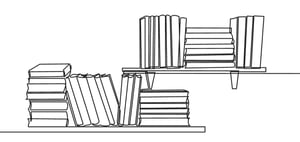Most of us spend inordinate amounts of time consuming content – books, emails, podcasts, articles – and it can be hard to separate the signal from the noise. Below is a compilation of the content that has reverberated through CircleUp inboxes in 2018 and has struck a chord. It’s the type of content that is referenced at company all-hands, content that helps reframe how we approach problems, and content that gets stuck – like a catchy song – in people’s heads.
Topics range from finance to machine learning to psychology to leadership. Some content is from 2018 while other pieces are blasts from the past. Enjoy:
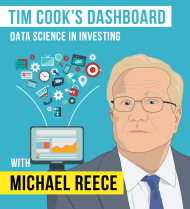
Podcast: Patrick O’Shaughnessy’s Invest Like the Best (Ep. 91)
Excerpt: “Correlation is not causality…. [You want to] avoid the risk of just finding spurious correlations… Spurious correlation is a classic Quant sort of problem… Some are using computing power to try every machine learning method on their data and picking the one that works best. That is the problem with data mining and it’s just laziness in terms of thinking.”[44:40]
CircleUp’s take: Start with economic intuition rather than boiling the ocean looking for signal. This requires collaboration between business and technical teams to identify and test hypotheses.
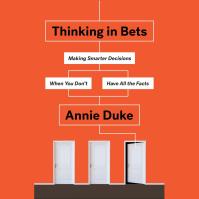
Book: Annie Duke’s Thinking in Bets
Excerpt: “What makes a decision great is not that it has a great outcome. A great decision is the result of a good process, and that process must include an attempt to accurately represent our own state of knowledge. That state of knowledge, in turn, is some variation of ‘I’m not sure.’”
CircleUp’s take: The quality of the process is everything. To build sustained value, be occasionally wrong for the right reason rather than right for the wrong reasons.
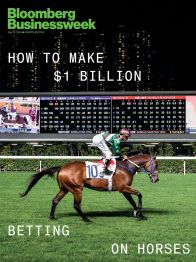
Article: Bloomberg’s The Gambler Who Cracked the Horse-Racing Code
Excerpt: “Benter had achieved something without known precedent: a kind of horse-racing hedge fund, and a quantitative one at that, using probabilistic modeling to beat the market and deliver returns to investors… Thirty-two years after he first arrived in Hong Kong, Benter is still betting on horses at venues around the world.”
CircleUp’s take: Being a first-mover means you deal with all of the quirks and failures, but you’re rewarded for it in the long term.C
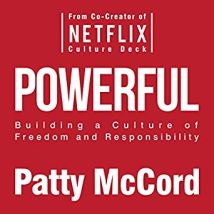
Book: Patty McCord’s Powerful: Building a Culture of Freedom and Responsibility
Excerpt: “Great teams are not created with incentives, procedures, and perks. They are created by hiring talented people who are adults and want nothing more than to tackle a challenge, and then communicating to them, clearly and continuously, about what the challenge is.”
CircleUp’s take: Prioritize your people. Perks won’t do that for you.

Letter: Sam Hinkie’s Resignation Letter
Excerpt: “A way to prop up this kind of humility is to keep score. Use a decision journal. Write in your own words what you think will happen and why before a decision. Refer back to it later. Reading your own past reasoning in your own words in your own handwriting time after time causes the tides of humility to gather at your feet.”
CircleUp’s take: “Keep score,” and be intellectually honest with yourself. Reward others when they take the ego out of decisions.
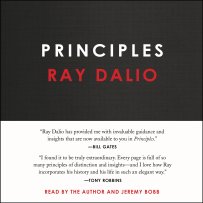
Book: Ray Dalio’s Principles
Excerpt: “Don’t mistake possibilities for probabilities. Anything is possible. It’s the probabilities that matter. Everything must be weighted in terms of
CircleUp’s take: Can we really say it better? This thinking can be applied anywhere.

Blog: Ben Thomson’s Stratechery The Moat Map
Excerpt: “The idea of a network effect is that an additional user increases the value of a good or service… However, the type of network effect differs considerable, as well as the extent to which the network effect directly improves a company’s core product (what I am calling an ‘internalized’ versus ‘externalized’ network effect).”
CircleUp’s take: Understanding the nuances of a network effect helps you enhance it.
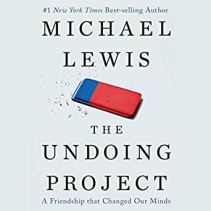
Book: Michael Lewis’ The Undoing Project
Excerpt: “The human mind was just bad at seeing things it did not expect to see, and a bit too eager to see what it expected to see. Confirmation bias is the most insidious because you don’t even realize it is happening.”
CircleUp’s take: Name and question assumptions. Ask, “what data do I have to make this case?” If the answer is “none” then the question should quickly becomes, “what data could I get to create a point of view?”
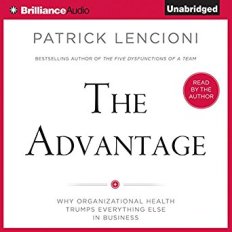
Book: Patrick Lencioni’s The Advantage: Why Organizational Health Trumps Everything Else In Business
Excerpt: “Every endeavor of importance in life, whether it is creative, athletic, interpersonal, or academic, brings with it a measure of discomfort.”
CircleUp’s take: Lean into challenges. Our CEO often says, “the only things worth doing in life are hard.”
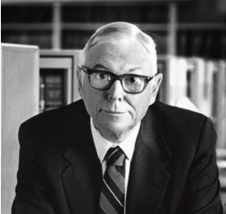
Speech/Video: Charlie Munger: The Psychology of Human Misjudgement
Excerpt: “To the man with a hammer, every problem tends to look pretty much like a nail. The alternative truth was a little messy, and they’d forgotten the great economists Keynes, whom I think said, ‘Better to be roughly right than precisely wrong.’”
CircleUp’s take: And now we are beginning to get repetitive. Think in probabilistic terms, not in certainties.
